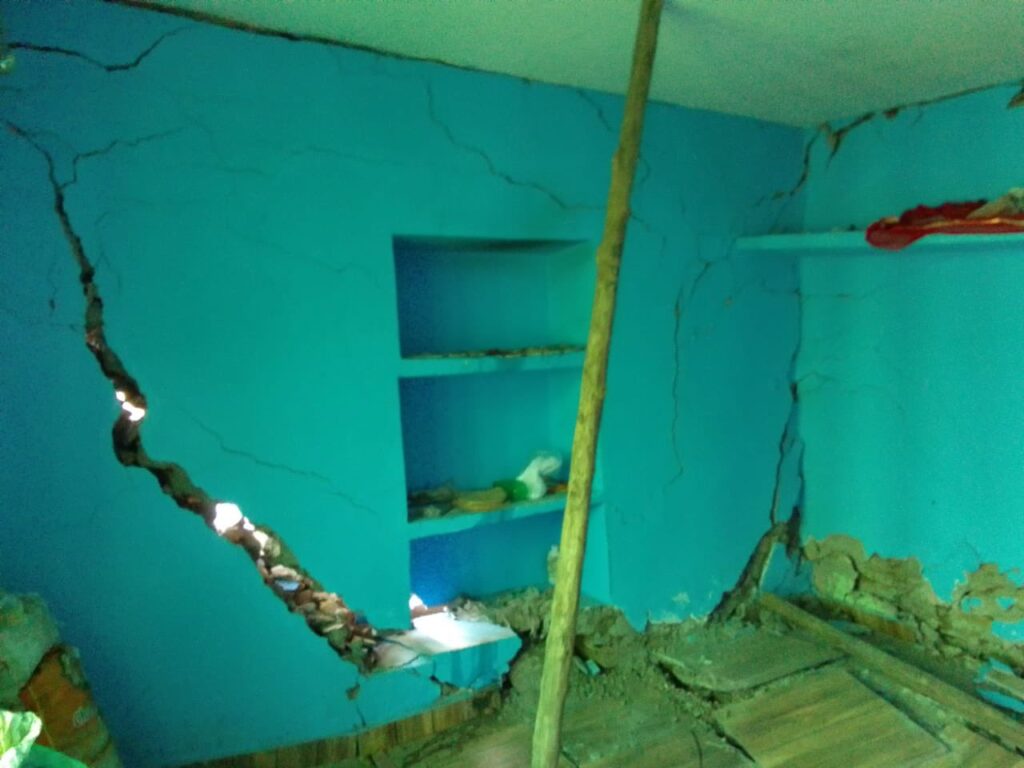Dehradun: Joshimath has been declared a ‘sinking zone’ in the wake of continuing land subsidence, with several homes and roads developing cracks over the last few days, driving residents outdoors and triggering fear.
Taking stock of the prevailing situation in the popular pilgrimage site, Uttarakhand Chief Minister Pushkar Singh Dhami has given instructions for monitoring all ongoing development works in the area while ensuring immediate relief and rescue of residents affected by the Joshimath landslide and subsidence.
He has also directed all possible help to the affected locals and speeding up of all development work in the area.
Meanwhile, Chamoli District Magistrate (DM) Himanshu Khurana went door to door in the affected area to assess the extent of damage, while urging residents in houses that have developed cracks to move to relief centres.
According to the Chamoli District Disaster Management Authority, 603 buildings in Joshimath town have developed cracks.
A total of 68 families have been ‘temporarily’ displaced. “Under the Disaster Management Act, 2005, Hotel Mount View and Malari Inn have been banned for operation and accommodation till further orders,” the Authority said in a statement.
Under the Joshimath city area, 229 rooms have been temporarily identified as habitable, with capacity estimated at 1271.
“The work of identifying places affected by landslides is in progress and the vulnerable families are being temporarily shifted to safer places,” an official said.
The ongoing construction under the NTPC’s Tapovan Vishnugad Hydroelectric Project has been stopped with immediate effect, till further orders.
Ho Hare Helang bypass construction work by the Border Roads Organisation (BRO) has also been suspended with immediate effect, till further orders. “With immediate effect, a ban has been imposed on construction works being carried out under Joshimath Municipality, till further orders,” the Authority stated.
The district administration on Sunday distributed necessary assistance funds for essential household items to the affected families.

Funds have also been distributed to 46 affected families for essential household items at the rate of Rs 5,000 per family.
While the cause of the apparent subsidence in the holy town is unclear, an Emeritus scientist at the Indian National Science Academy (INSA), DM Banerjee, blamed the construction of roads and tunnels for a nearby hydroelectric project for the prevailing situation.
“Joshimath is a part of the lesser Himalayas, the rocks are from the Precambrian era and the territory is of seismic zone 4. Apart from this, people should not have made houses on this land, especially not big ones with 3-4 storeys,” Banerjee told.
ANI
